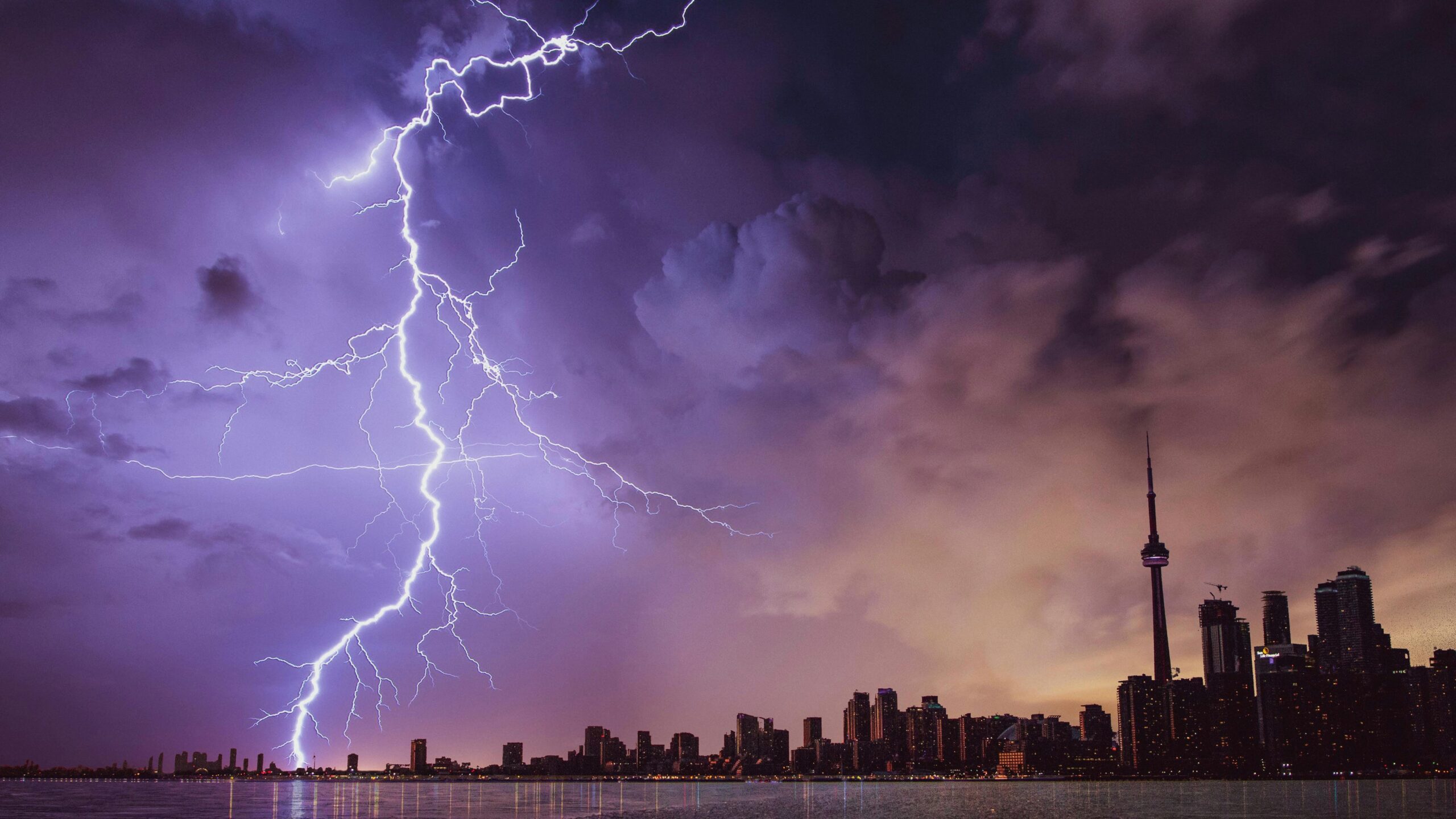Many people in the Southern Ontario area took shelter in their basements when they received an Amber Alert warning of a possible tornado.
Residents in York Region, including the Newmarket area, were huddled in their basements worried about their homes.
Fortunately, the warning was quickly downgraded to a severe thunderstorm warning, and we all went to sleep to flashes of lightning and rolling thunder.
Others were not so lucky, some parts of Southern Ontario received large hailstones, strong winds and heavy rains.
The Barrie-Orillia area received 81.7 mm of precipitation yesterday — breaking the previous record in Barrie of 26.7 mm in 1872 — and was hit by winds up to 66 km/h, Environment Canada said.
This is on the same day that the temperature rose to 27.8 C.
Tim Ellis, an organizer for Canada Truth, a partner of the Toronto Climate Action Network, said extreme weather is distinguished from normal weather by the damage it causes, the disruption it causes or the intensity and severity of the weather event.
“We have seen an increase in that over recent years and we’re expecting to see quite a bit more,” Ellis said.
Ellis said he believes climate change is one of the key factors in this increase, it’s “settled science.”
Scientists have a good understanding of the energy that is trapped by carbon and they have a good understanding of how much carbon is put out by industry, Ellis said.
“We can measure these things and we can do the calculation so it’s known that the extra energy in the atmosphere from the heat is contributing to extreme weather,” Ellis said.
The first step here is to stop making it worse, he said.
To Ellis that means putting a stop to pollution in the atmosphere as quickly as possible, meaning a halt to burning fossil fuels.
And then after that, society has to prepare for the damage that’s already been baked in, which means building more resilient communities, investing in the infrastructure to support communities to get through this, Ellis said.
For homeowners, that could mean investing in a heat pump to replace a gas line or investing in solar, he said.
“Those kinds of individual actions, they do add up. But it’s going to be a lot more impactful if you do that in an organized way,” Ellis said.
That’s why to stop the damage, it is important to just get involved politically, write to your MP and tell them to put a cap on emissions, he said.
“That’s part of the battle, so getting involved politically is important,” Ellis said.

